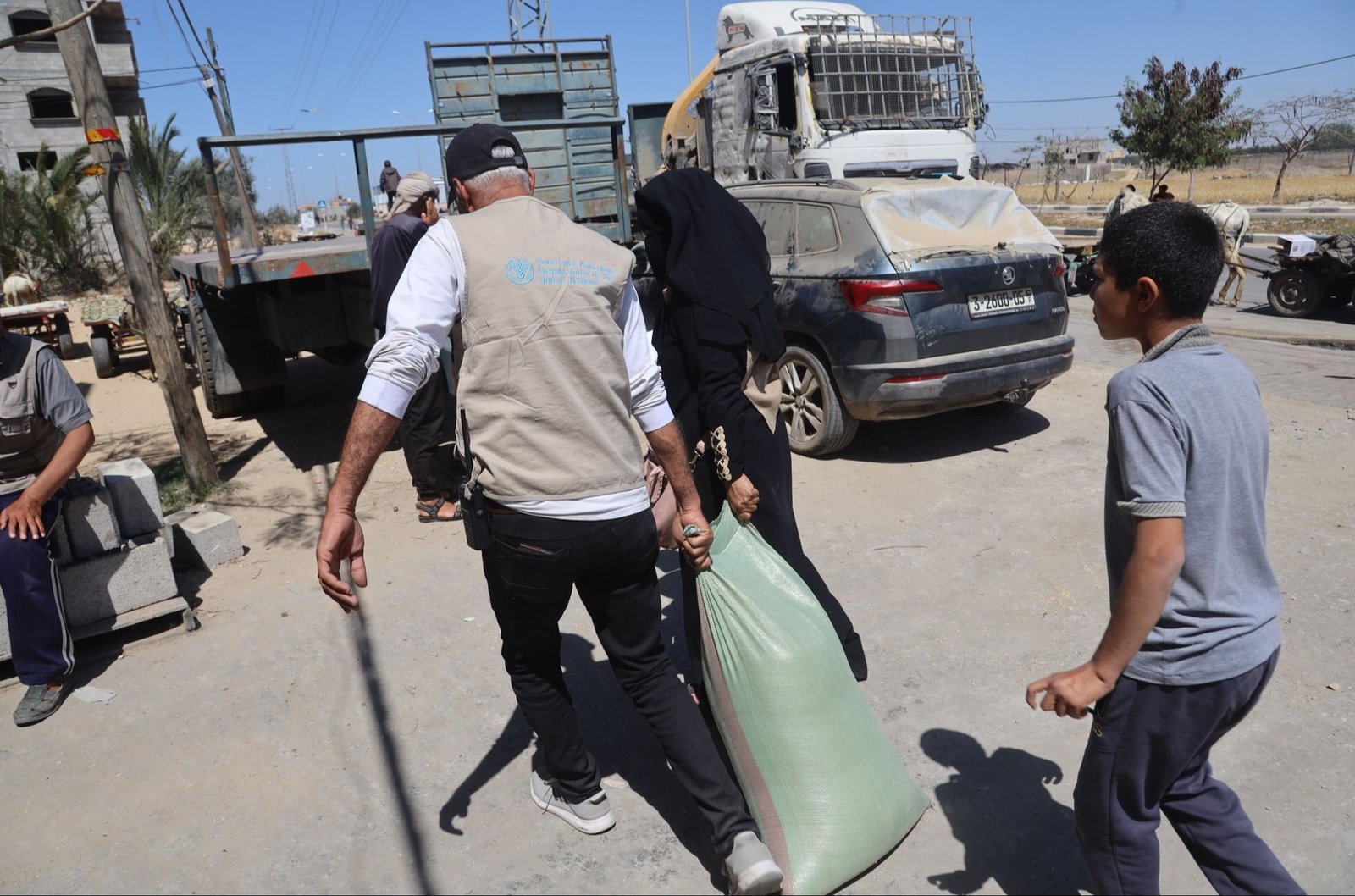Tuesday, 3 March 2026
FAO contributes to fighting malnutrition and starvation in Gaza
FAO is distributing 150 tonnes of fodder to 2 450 vulnerable livestock-holding families in the Gaza Strip to support food production The Food and Agriculture Organization of the United Nations…

FAO is distributing 150 tonnes of fodder to 2 450 vulnerable livestock-holding families in the Gaza Strip to support food production
The Food and Agriculture Organization of the United Nations (FAO) is delivering 150 tonnes, out of a total of 1500 tonnes, of animal fodder to 2 450 livestock-keeping households in the Gaza Strip to safeguard surviving animals and support local production of fresh nutritious food like milk, dairy, eggs and meat amidst an imminent risk of famine.
This is the first time much-needed animal fodder has entered the Strip since the escalation of hostilities, which has caused the collapse of agrifood value chains, contributing to rapid deterioration of acute food insecurity in Gaza, with famine conditions emerging in the north.
The agriculture sector was already diminished pre-war yet remained vital to the local economy. Before 7 October, Gaza’s food producers kept the Strip nearly self-sufficient in eggs, milk, poultry and red meat, fish, vegetables and fruits. These items are indispensable to a healthy, nutritious diet, especially for children, and are impractical to import as food aid.
Around 55 per cent of meat and dairy-producing livestock in Gaza have been slaughtered, consumed, or lost due to the conflict. Only 45 per cent of small ruminants remain, corresponding to approximately 30,000 heads, as of March.
“The scarcity of animal fodder puts livestock holders at significant risk, causing the complete loss of their primary assets, source of nutrition and income. Every animal that dies has lasting impacts, is costly to replace and virtually impossible due to import restrictions. By ensuring fodder availability, we can support the survival and reproduction of livestock, and provide essential nutritious and fresh food even during conflicts,” stated Ciro Fiorillo, Head of Office of FAO West Bank and Gaza Strip.
FAO seeks to deliver initially a total of 1,500 tonnes of fodder, which is sufficient to provide for about 50 days of milk for all children under 10 years of age in Gaza, providing around 20 per cent of the WHO recommended minimum daily requirement in terms of caloric intake.
Technology
IPC Report Flags Rapidly Deteriorating Food Security across Somalia
Mar 02, 2026 | Africa
University of Florida Develops Vitamin A–Rich Tomato to Tackle Global Deficiency
Mar 02, 2026 | Food
Inside the World’s First AI Centre of Excellence for Chocolate and Cocoa
Mar 02, 2026 | Interaction
Food Testing
Australian Medical Bodies Push for Compulsory Health Star Labelling
Feb 24, 2026 | Australia
Tim Hortons Singapore Secures Majlis Ugama Islam Singapura Halal Certification Ahead of Ramadan
Feb 23, 2026 | Company News
More Popular
Wildbrine Launches Industry-First Fermented Bean Salad
Mar 02, 2026 | Company News
IPC Report Flags Rapidly Deteriorating Food Security across Somalia
Mar 02, 2026 | Africa
University of Florida Develops Vitamin A–Rich Tomato to Tackle Global Deficiency
Mar 02, 2026 | Food






